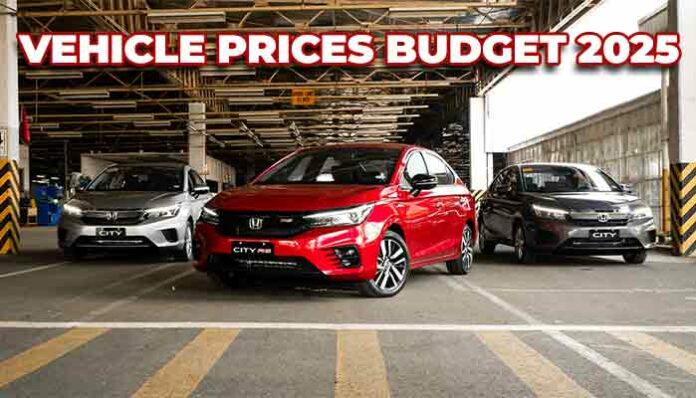Well-known auto expert Suneel Sarfaraz Munj has clearly stated that there is no possibility of vehicle prices dropping in the Vehicle Prices Budget 2025, putting an end to all the rumors.
Impact of New Taxes
He warned that the government’s decision to introduce a carbon tax and raise the petroleum levy could seriously affect ordinary people. These extra charges will increase the cost of fuel and energy, which means daily things like traveling and electricity bills will become more expensive. “This is not just about numbers it will directly impact the budgets of families already struggling with rising expenses,” he explained.
Munj clarified that any cut in regulatory duties would mostly help those purchasing luxury cars. He also pointed out that this change is unlikely to bring down the prices of locally made vehicles in the Vehicle Prices Budget 2025.
High Prices Will Continue
He highlighted that unless taxes on locally made cars are lowered, the typical Pakistani will keep dealing with high prices and won’t see much relief.
Munj warned that now is not the right time to relax import rules. He believes the government should concentrate on helping local car manufacturers by lowering taxes on vehicles made in the country, rather than opening the market to more imported cars. A crucial point in the Vehicle Prices Budget 2025 discussions.
IMF and Budget Cuts
The IMF previously suggested that Pakistan slowly reduce the federal funding it provides for development projects in the provinces under the Public Sector Development Programme (PSDP).
Sources report that during virtual talks with provincial officials, the IMF stressed the importance of reducing spending for the 2025-26 budget, with the provinces fully involved in the discussions.
The IMF has recommended that provincial governments gradually reduce their dependence on federal funding by finding ways to raise their own revenue. One key suggestion is for provinces to start collecting income tax on agricultural earnings that exceed Rs600,000 annually.
This tax is expected to come into effect from July 1, 2025, and it will apply without any exemptions. The idea behind this move is to encourage provinces to become more financially independent and better able to support their own development projects.
Despite the rising vehicle prices in the upcoming budget, it is crucial for people to plan their finances carefully considering their essential needs. As Suneel Sarfaraz Munj pointed out, government policies and taxes mean no immediate relief in prices, but supporting the local car industry is the key to making vehicles more affordable in the future.
Therefore, the government and stakeholders should focus on sustainable solutions, such as improving fuel efficiency and adopting greener technologies, to reduce the burden on everyday consumers. These efforts will ultimately lead to a stronger and more accessible transportation system in Pakistan that serves all segments of society fairly and reliably, beyond just the Vehicle Prices Budget 2025 outlook.

